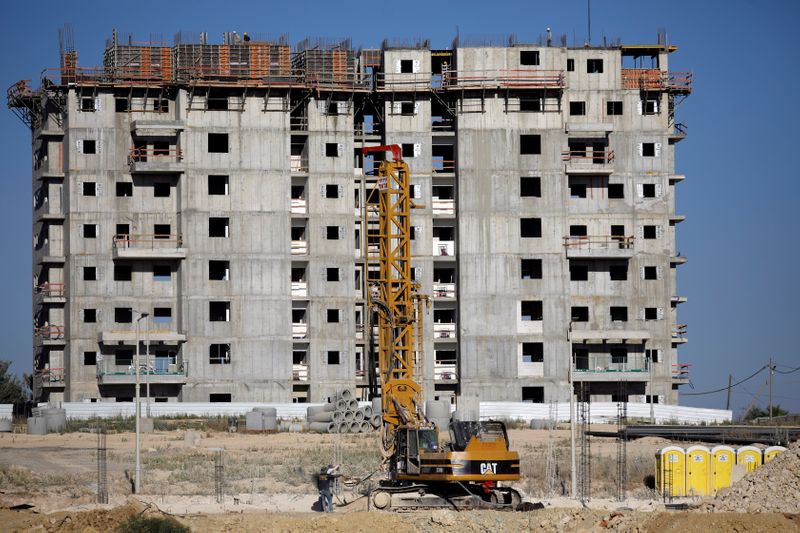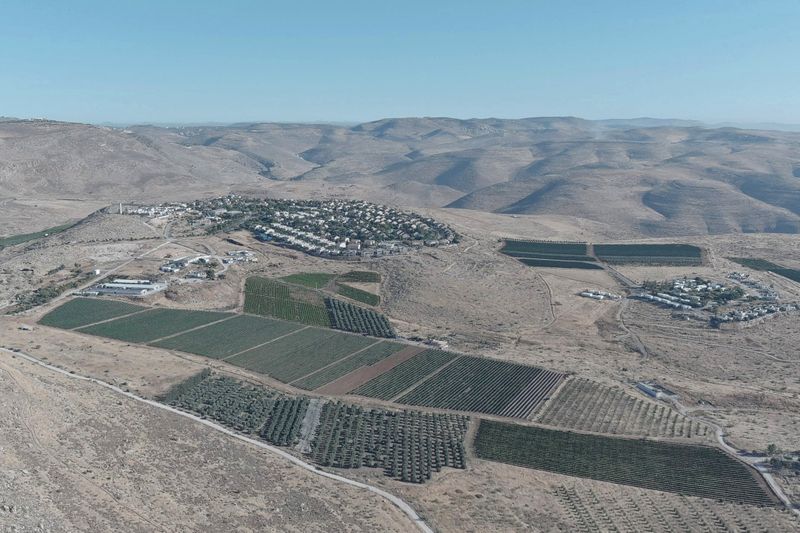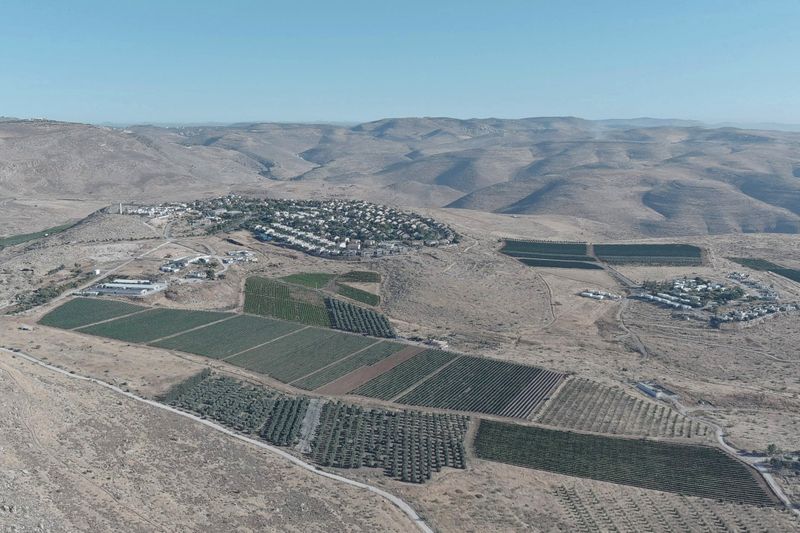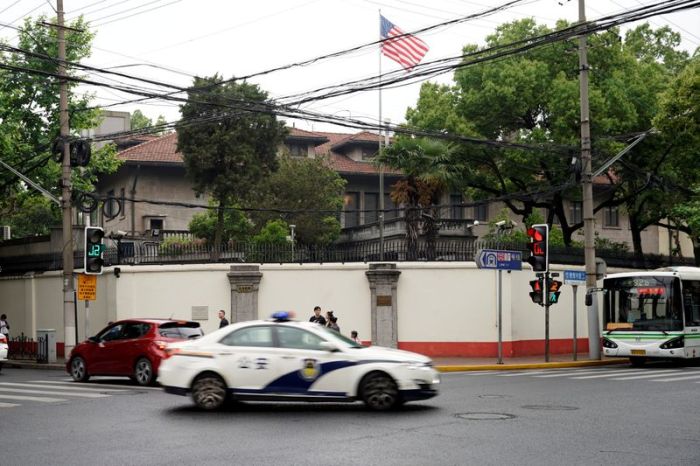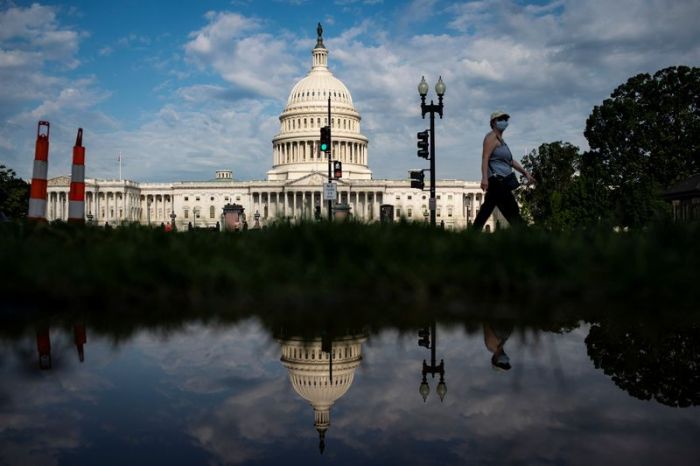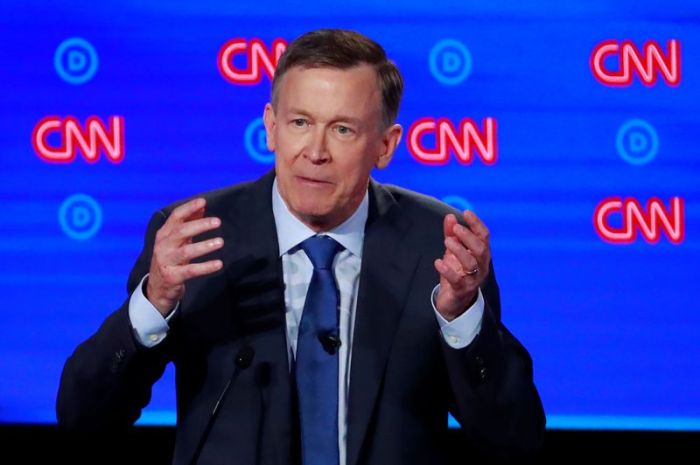JERUSALEM (Reuters) – Israeli annexation in the occupied West Bank might be weeks away, a government minister said as a start date on Wednesday for cabinet discussions of the move slipped by in the absence of a green light from Washington.
Palestinians seek the West Bank for a future state. In a show of Palestinian unity, some 3,000 people in the Gaza Strip, including members of the mainstream Fatah party and the rival Hamas group that runs the enclave, protested against annexation.
Israeli leaders decided in May that cabinet and parliamentary deliberations on extending Israeli sovereignty to Jewish settlements and the Jordan Valley in the West Bank, in coordination with Washington, could begin as of July 1.
But with no agreement with Washington yet on the modalities of the move under a peace proposal announced by U.S. President Donald Trump in January, and talks with the White House still under way, no cabinet session was scheduled for Wednesday.
“I think that it will happen in the coming weeks or months, but I am not versed in the details,” Energy Minister Yuval Steinitz, a member of Prime Minister Benjamin Netanyahu’s right-wing Likud party, said about annexation on Israel Radio.
An aide to Netanyahu said talks with Washington – Israel’s main ally – were continuing and that the prime minister had consulted Israeli defence officials on Wednesday, with more discussions to be held “in the coming days”.
Palestinian leaders, the United Nations, European powers and Arab countries have denounced any unilateral territorial steps planned by Israel and consider settlements it has built on land captured in a 1967 war as illegal.
Israel disputes this, citing biblical, historical and political roots in the West Bank.
FOCAL POINT
Netanyahu has made annexation a focal point of his fifth term in office in what some critics see as an attempt by the right-wing leader to deflect attention from his corruption trial, which began in May, and enhance a political legacy.
He has denied charges of bribery, fraud and breach of trust.
A lengthy delay or scaling down of annexation in the face of vocal opposition from many of Washington’s Arab allies would be politically embarrassing for Netanyahu, who has often hailed the “historic opportunity” for Israel provided by the Trump plan.
Trump’s blueprint, which he says is intended to help bring peace between Israel and the Palestinians, also calls for creation of a Palestinian state but with Israel sovereignty over 30% of the West Bank. The Palestinians have rejected the plan.
In an editorial in Israel’s largest selling newspaper on Wednesday, British Prime Minister Boris Johnson called for any annexation plans to be scrapped.
France’s foreign minister, Jean-Yves Le Drian, told French parliament that “an annexation decision could not be left without consequences”.
He said Paris was “examining different options at a national level and also in coordination with our main European partners”.
(Writing by Jeffrey Heller, Additional reporting by Maayan Lubell in Jerusalem, Nidal al-Mughrabi in Gaza, Guy Faulconbridge in London and John Irish in Paris, Editing by Timothy Heritage)





